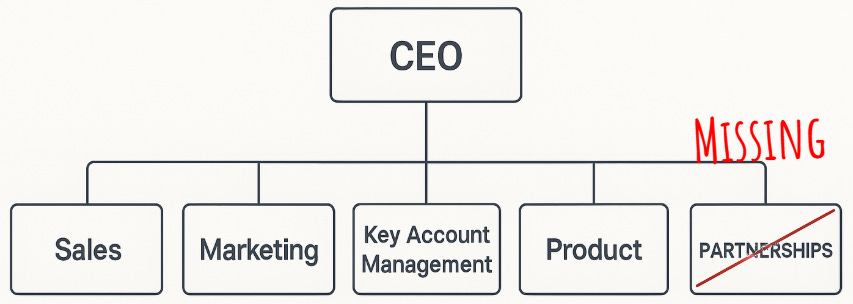Why the term "partnerships" is so confusing in logistics
And what we can do about it...
Partnerships in logistics is broken.
Depending on who you are, what role you have, and what company you work for, that sentences means something totally different.
And that is the problem — the term “partnership” has inconsistent meaning within the logistics industry.
When you’re like me and you carry the title “Partnerships Manager” it can be very challenging to work with logistics companies.
Here’s a list of what partnerships might mean:
Possible “Partnership” Definitions
A customer (eg - inventory owner, brand, retailer, BCO)
A vendor, services supplier, hardware supplier or their contractors
An operating partner which doubles as a customer or vendor
A reseller, wholesale, or distributor of another logistics services provider (LSP)
A totally unrelated ecosystem partner (eg - A payments company)
A equity partner or joint venture partner, which can be an operating partner too
A digital platform integration partner — ME!
Are you thoroughly confused yet?
I’m Here to Make US Rich
As a Partnerships Manager, my job is very simple — I’m here refer my customers’ business to our partners, and get the same in exchange.
My goal is net new logos in the non-SMB/SME segment.
To make that work, we need to identify a clear value creation for our customers from our partnership — for most technology companies this means that our products, when joined forces, unlocks new powers for our shared customers.
Partnership Manager Office - Vacant
The biggest challenge I have working with logistics companies is that they simply have no concept of the above type of partnership, and that means I often have no counterpart to work with for driving the partnership.
Most often I get passed to a Sales Director, or Sales VP, or some BD head. The sales leader usually wants to treat me like a reseller or channel partner, giving me a “good price” or a revenue share in order to sell their logistics services. But I’m not your sales agent — my goal is software sales not logistics revenues.
Sometimes I’m passed around the key account management team. A few times I’ve been interfacing with marketing just because the partner wants to do joint marketing only.
Typically these counterparts own their function, but cannot coordinate and influence all the teams that are necessary in the partnership. To be successful in partnerships, a Partnership Manager needs:
Access to the sales teams
Access to customer success and key account management
Access to marketing
Influence and collaboration with product management leadership
How to Fix It
Partnership Management should exist as a separate department reporting to the revenue head or the CEO.
Give Partner Managers the same targets and quotas as your sales teams and marketing teams.
If a marketing senior is required to source in $500K per year in new logos in closed deals, then the partnership manager needs to generate the same amount in deals sourced from partners.
Crossbeam CEO Bob Moore has an excellent book called “Ecosystem Lead Growth” on the topic which is great reading to understand the partnerships playbook much better.



